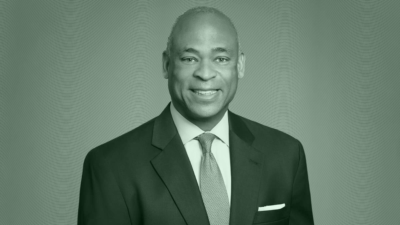Most Americans Question Online Financial Information
Some 80% of Americans are skeptical of the investment and saving information they find on social media.

Sign up for market insights, wealth management practice essentials and industry updates.
Don’t believe everything you see on the internet.
It’s easy to seek financial advice online, and more than half of Americans do it at least once a week. But that convenience comes at a cost as about 60% of people say they’ve made decisions they later regretted based on bad information, according to a new CFP Board survey.
Many are cautious, with four out of five questioning what they see online, and only two in five believing it’s in their best interest. But even those working with professional advisors may still be tempted by tips from influencers or popular YouTubers, and it’s up to wealth managers to keep them hesitant.
“The sourcing has changed but this is the same as ‘locker room talk’ used to be in the ‘50s,” said Edward Thomas, a CFP with Savant Wealth Management.
Look It Up on the Internet
Misinformation can have lasting consequences. For example, a third of Americans said bad online information has led them to delay making major purchases and even entering retirement, the report found. In this digital age, it can be hard to avoid misleading, outdated or flat-out wrong information:
- YouTube, Facebook, Instagram and TikTok are the top sites where Americans seek financial information, according to the CFP Board.
- The most common matters on which Americans find misinformation include investment returns, Social Security, real estate and tax strategies.
- Some 32% of Americans most frequently seek advice from a wealth manager, making professionals the fifth most popular source of information behind friends and family, financial websites, social media, and banks or credit unions.
“Online financial information is ubiquitous,” said Kevin Roth, managing director of research at the CFP Board. “It’s a starting point in one’s financial journey, not a final answer.”
Take out the Trash. It might not be too surprising, but younger generations have more faith in the worldwide web, with half of Americans age 25-45 believing most or all online financial information has their best interests in mind, per the CFP Board report. They’ve embraced finfluencers, podcasters and even ChatGPT as their financial mentors. Meanwhile, only a quarter of those ages 46-64 feel the same way.
WFA Asset Management advisor Marilou Davido said the concern about younger people using AI platforms is that often they’re not looking for education, but just a quick answer. “If young people aren’t taught investment management and financial planning, their AI input will be garbage because they won’t know what is important to input and how to interpret the results,” she told Advisor Upside. “And you know what they say: ‘Garbage in, garbage out.’”











